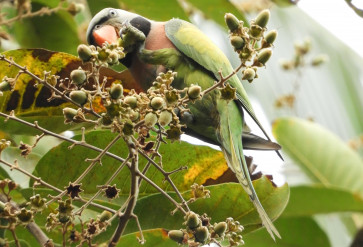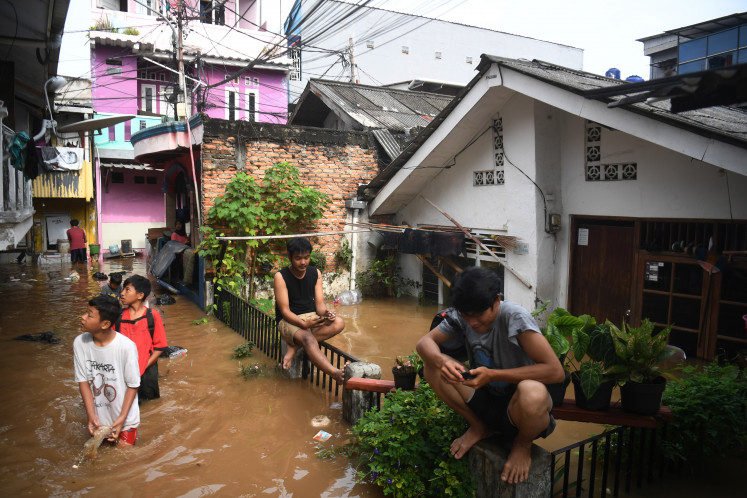Popular Reads
Top Results
Can't find what you're looking for?
View all search resultsPopular Reads
Top Results
Can't find what you're looking for?
View all search resultsGovt defends social forestry program on Perhutani land
The Environment and Forestry Ministry defended on Tuesday its policy to allow citizens to manage degraded forests owned by state forestry Perhutani, which activists say could destroy existing forests on Java
Change text size
Gift Premium Articles
to Anyone

T
he Environment and Forestry Ministry defended on Tuesday its policy to allow citizens to manage degraded forests owned by state forestry Perhutani, which activists say could destroy existing forests on Java.
The activists are currently challenging the policy, stipulated in the 2017 Environment
and Forestry Ministerial Regulation on social forestry inside Perhutani working areas, at the Supreme Court.
Hadi Daryanto, the ministry’s social forestry and environmental partnership director general, said at a press briefing on Tuesday that the policy was initiated by President Joko “Jokowi” Widodo.
Through the scheme, small-scale farmers are permitted to manage Perhutani’s degraded land, measuring at around 450,000 hectares in total, for a maximum of 35 years. It also uses a profit-sharing mechanism between the two parties depending on the type of business carried out by the permit holders.
Permits for landless farmers and farmers who own land below 0.5 ha are prioritized.
Following the issuance of the regulation in June, the ministry gave seven permits to communities in Pacet and Muara Gembong in West Java; Pemalang, Central Java; and Probolinggo and Jember in East Java; on 4,969 ha of land.
For San Afri Awang, a forestry professor at Gadjah Mada University (UGM) in Yogyakarta, the aim of Jokowi’s social forestry policy was best explained using Karl Marx’s theory on social class.
“Marx said we had to increase the grade of a class, not to reproduce a class. In doing the latter, the conflict between the proletariat and the bourgeoisie would always escalate,” said San Afri.
Therefore, to alleviate poverty, San Afri said, poor farmers needed to be given certainty to support their land management activities, including through the social forestry program, which basically allows locals to manage state-owned forest areas.
San Afri is no stranger to forestry policymaking, having served as the ministry’s forestry planning director general from 2015 to early 2017. For him, the regulation, issued in June, could restore forests on Java to their ideal state, benefiting locals economically and creating a full stock of forest resources.
Some 46 percent of villages located near forests on Java were poor villages, San Afri said, adding that, according to the government’s monitoring records since 2001, there were no improvements in tree cover on Perhutani’s degraded land. “Therefore, there was a correlation between the conditions of degraded forest areas and locals who were always poor,” he said.
But plaintiffs challenging the policy have argued it could further negatively impact both the environment and the social life of locals. The plaintiffs argued that the new regulation conflicted with the 1999 Forestry Law.
“If forests were managed by thousands of reckless permit holders, just think what would happen to Indonesia’s forests. We are just waiting for a natural disaster to come,” said Nace Permana, an environmental activist supporting the plaintiffs, as quoted by tribunnews.com.
Hadi said the argument was baseless because the policy was implemented on degraded land. Cultivating trees on degraded land, he said, would automatically increase forest cover and therefore reduce the risk of the land being hit by natural disasters such as floods and landslides.
“The plaintiffs failed to see that there was a provision [in the ministerial regulation] saying that the lands that can be managed by locals were those with tree cover below 10 percent in a consecutive five-year period,” said Hadi.









